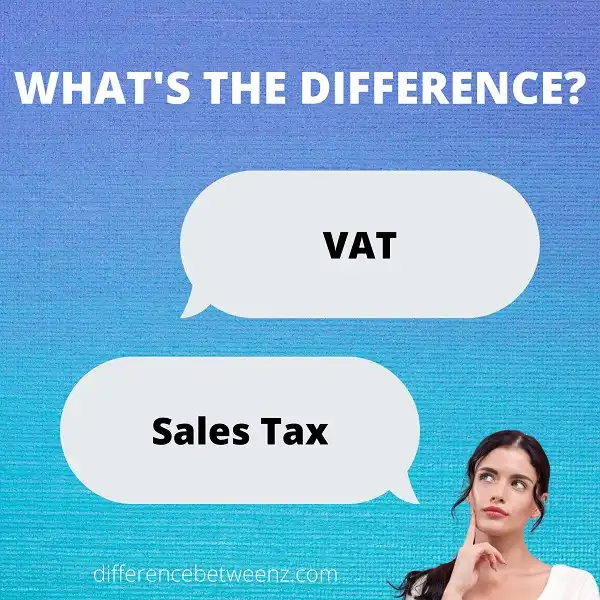When it comes to taxes, it can be difficult to keep track of all the different types and how they work. Two of the most common types of taxes are VAT and Sales Tax. Both taxes apply to goods and services, but there are important differences between them. In this blog post, we will explore the difference between VAT and Sales Tax. We will also look at how each tax works, and when you might need to pay them. By the end of this post, you should have a better understanding of both VAT and Sales Tax, and know which one is right for your business.
What is VAT?
VAT is a value-added tax that is levied on most goods and services sold in the European Union. The VAT rate varies from country to country, but is typically around 20%. VAT is designed to be a consumption tax, meaning that it is paid by the final consumer. Businesses are able to recover VAT on their purchases, but must charge VAT on their sales. VAT is a complex tax, and businesses must comply with a number of regulations in order to correctly file their VAT returns. However, businesses can benefit from VAT in several ways, including reducing their overall tax liability and improving their cash flow.
What is Sales Tax?
Sales tax is a tax imposed on the sale of goods and services. The tax is calculated as a percentage of the sales price of the good or service. Sales tax is generally imposed by the state in which the sale takes place. In some states, localities may also impose sales tax. Sales tax is generally collected by the seller from the buyer at the time of sale. The seller then remits the tax to the state. Sales tax rates vary by state, but they are typically between 4% and 8%. Some states exempt certain items from sales tax, such as food and medicine. Sales tax can be a significant source of revenue for state and local governments. In 2018, sales tax generated more than $1 trillion in revenue for state and local governments in the United States.
Difference between VAT and Sales Tax
VAT and Sales Tax are both consumption taxes levied on the sale of goods and services. VAT is imposed at each stage of the production process, while Sales Tax is only imposed on the final sale of the good or service. VAT is also generally calculated as a percentage of the selling price, while Sales Tax is typically a fixed amount. Because VAT is applied to the price of goods and services at each stage of production, it can lead to higher prices for consumers. Sales Tax, on the other hand, is only applied to the final sale price, which means that it does not have as much of an impact on consumer prices. VAT is also typically imposed on a wider range of items than Sales Tax, which means that it can raise more revenue for governments. However, VAT can be difficult to administer, especially in large and complex economies. Sales Tax is generally simpler to administer, which makes it a more popular choice for many governments.
Conclusion
The difference between VAT and sales tax may seem like a minor detail, but it can make a big impact on your business. Knowing the difference and how to apply each one correctly is essential for small business owners.


